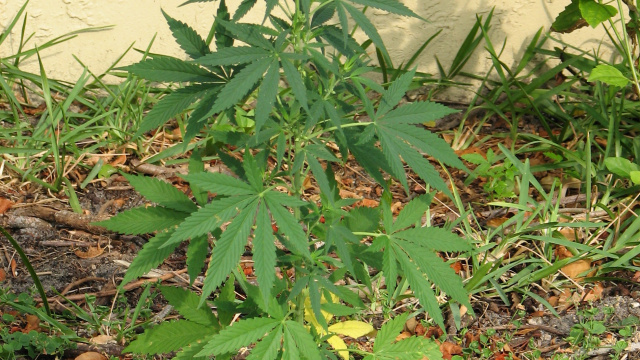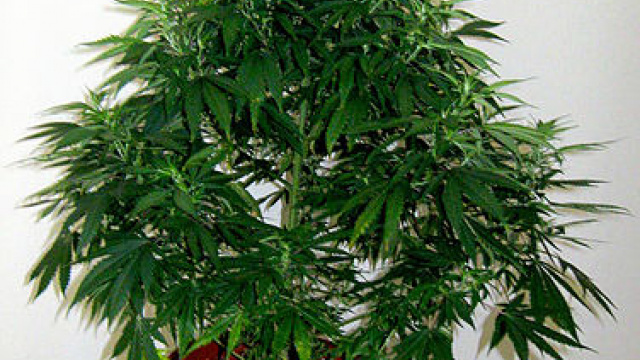 A new crime-data analysis has found that 241,000 people in Washington were arrested for misdemeanor marijuana possession over the last quarter-century, adding fuel to a campaign seeking to make this state the first to legalize recreational marijuana sales.
A new crime-data analysis has found that 241,000 people in Washington were arrested for misdemeanor marijuana possession over the last quarter-century, adding fuel to a campaign seeking to make this state the first to legalize recreational marijuana sales.
The analysis estimates those arrests translated to nearly $306 million in police and court costs — $194 million of it the past decade. African Americans were arrested twice as often as whites for possession in Washington in the past 25 years, even though whites use marijuana more.
Those findings dovetail with arguments for Initiative 502, the state ballot measure that would decriminalize minor marijuana possession and heavily tax sales at state-licensed stores.
Co-author Harry Levine of City University of New York said his group, Marijuana Arrest Research Project, was primarily funded by left-leaning philanthropist George Soros’ Open Society Foundation and received no money from I-502′s major donors.
But the timing is not coincidental, said another co-author, Jon Gettman of Shenandoah University in Virginia, who like Levine supports decriminalizing marijuana possession.
“The public is paying attention to this issue right now. People are watching this debate in Washington state with interest,” Gettman said.
Their analysis mirrors earlier research on racially biased enforcement of marijuana laws in this state, but this report goes deeper. Relying on crime data compiled by the FBI, they found arrests for marijuana possession spiked 178 percent from 1986 to 2010, while the state population grew by 50 percent.
Usage is highest among younger people, and so were arrests: 58 percent of those arrested in the past decade were 24 or younger.
Arrest rates in dense Puget Sound counties, including King, were lower than the state average, and the overall arrest rate dipped after Seattle voted in 2003 to de-emphasize marijuana arrests.
But the rate spiked back up, peaking at 15,065 arrests in 2008. It has been highest in farming counties in Eastern Washington and in Whitman County, home to Washington State University.
“There are cities and counties around the state and the country who generate (federal) revenue through drug-arrest statistics,” said former Seattle police Chief Norm Stamper, a supporter of Initiative 502. “Often time, instead of targeting bigger time traffickers, local law enforcement will target low-hanging fruit,” such as minor marijuana cases.
The report’s findings about arrest rates for whites and minorities were stark: Although whites report, nationwide, using marijuana at the highest rates, African Americans in Washington were arrested 2.9 times more often than whites in the past decade.
At an I-502 debate Wednesday night, the Rev. Leslie David Braxton, an I-502 supporter, made that point. He said there were “more black boys and girls in prison” than in colleges and universities, “not because we smoke more weed than white boys and girls, but because the laws are enforced in a discriminatory pattern.”
The report estimates the cost of marijuana arrests using a 2001 study by the Washington State Institute for Public Policy, putting the figure at $1,500 per arrest.
Based on that estimate, the state has spent $306 million since 1986 on marijuana enforcement — a figure that does not include defense costs or fines, should the defendant be convicted.
The state Institute recently updated the per-arrest cost for police, prosecutors and the court to $871 for misdemeanor cases, according to Steve Aos, Institute director.
But an earlier analysis, by two University of Washington professors, estimated that each misdemeanor arrest costs $3,656 in booking and jail costs.
While it’s difficult to tally all the costs associated with an arrest, Levine said his analysis tried to provide conservative “ballpark estimates,” and said that not all the costs are financial. He noted that arrest reports, which are included in some criminal background checks, cannot be easily expunged and can result in loss of a job or student aid.
“Contrary to what people think, the simple arrests carry enormous consequences way beyond the fines and the night in jail,” said Levine.
He conceded he views marijuana arrests to be “a scandal.”
“Like toxic waste or exploding Pintos, they are something that should be exposed,” he said.
News researcher Miyoko Wolf contributed to this report.
Source: Seattle Times (WA)
Author: Jonathan Martin, Seattle Times Staff Reporter
Published: October 11, 2012
Copyright: 2012 The Seattle Times Company
Contact: [email protected]
Website: http://www.seattletimes.com/



Leave a Reply